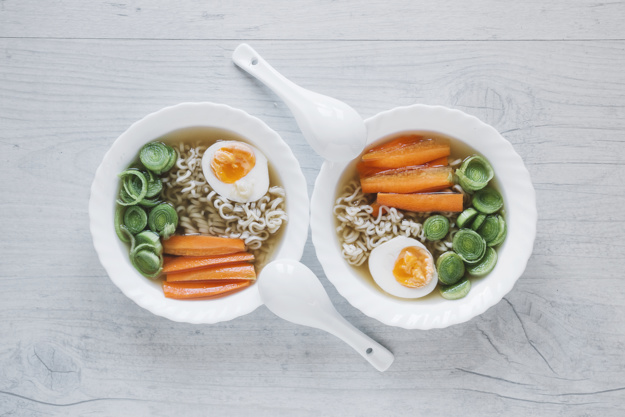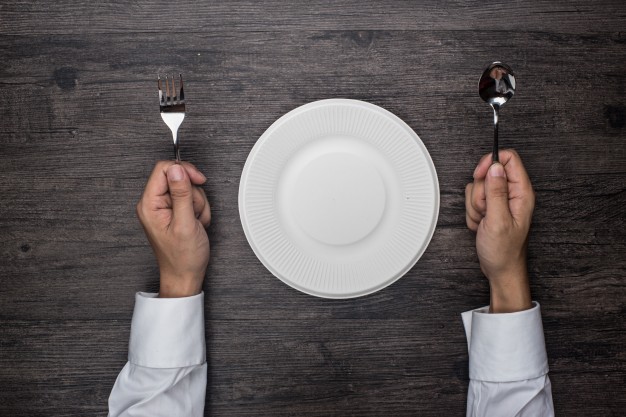Dear Pooja,
I am 29-year-old unmarried woman and planning to go for a trek to Manali after two months. Since trekking requires one to have good stamina, I would like to know the right diet that will help me increase my stamina levels. Currently, I feel tired when I run or brisk walk even for a short while. Please let me know which foods I should eat. Thank you.
Lets thank the Manali trip that triggered you to wake up and address the signs your body is giving you. In this roll-a-coaster life where we are so tuned to listening to every beep of our mobile distinguishing the sounds easily between an email, sms or or a what’s app – but the signs our body gives us so easily goes unnoticed. Weakness, breathlessness, poor stamina amongst others are all signals of under-nutrition, vitamins, minerals and/or amino acid deficiencies. Firstly I’d suggest you check your hemoglobin and serum B12 levels and have these deficiencies corrected as low levels of these are directly related to the signs you have mentioned above. Gaining long lasting stamina may take a little more love care and attention in your day-to-day diet and exercise regime over a long-term basis but you should see some definitive improvement within two months as well.
A visit to a nutritionist can teach you what your daily requirement for proteins and carbohydrates is and how to divide this effectively into several small meals to fuel your systems adequately. Keep the focus on good quality and quantity of proteins daily along with a good tilt toward fresh fruits and vegetables. Avoiding excess sugar and fat always goes a long way in terms of a fit and healthy mind and body. As I always suggest eating small meals every two hours not only improves metabolism and aids weight loss, it also makes sure that the body gets a steady supply to energy without any peaks or troughs in the blood sugar levels – this is one main essential for sustain Duracell stamina levels. Sorry I was unable to give you exact foods and quantities cause that requires me to know many details about you to help you in complete totality. All the best, hope you enjoy your trekking trip with great vigour and strength.
Dear Pooja,
I have been an egg lover for years but now that I have reached almost 35, people say i must not have so many eggs in one day. I am not fat, just a little overweight but I end up eating too many eggs in a day. (around three at least) People have asked me to stop eating yolks but that is the tastiest part of the egg, so i cannot! I walk three to four times a week for around 45 minutes… and that is the only exercise i ever do. Should I stop eating eggs? Are they really bad for my age?
Please advise.Eggs and bad? Never! How can something that has so much nutrition and so little calories ever be bad for you? At only 16 calories, the egg white provides a massive 4 grams of protein and is a 100% reference protein, which means that it all has all the nine amino acids needed for full utilisation by the body. Thus I can easily say that consuming about three to four egg whites can be a safe number for most adult to have on a daily basis. Yes, depending on you lipid profile and other healthy parameters, the number of yolks you can have weekly will have to be decided. The yolk may be tasty (for some) but there is some caution needed while having this daily – therefore discuss this with your doctor or nutritionist to get the exact count.
But egg whites are the safest, healthiest and most easily accessible form of complete protein that one should try and include daily. It helps one get better muscle tone, weight loss, stronger and longer hair and nails, lesser sugar cravings, better stamina, more attention and retention powers while studying, lesser aches and pains and this list is endless. Therefore let nobody fool you into stopping the egg whites Shikha, enjoy them daily – guilt free!
Dear Pooja,
I am 37, 58 kg, and my height is 5.1. Last year I had taken a herbal slimming pill for one month (LIDA) and lost around 10Kg. had felt energetic and less hungry and great during that time but, my bowel movement which had always been regular till then, went haywire – once in two days etc. I stopped after a month and in two months came back to my previous weight of 56-58kg. Just wanted to know what should one eat that acts as laxatives and keeps the system clear? What can help to detox? Which foods can help? I am a non-vegetarian and rarely have vegetables and fruits.
If there were such an easy way to lose weight (and maintain it) would more than half of the world’s population be overweight? There are no short cuts to weight loss darling I hope you have realized that now (perhaps the hard way). Each of these short cuts – pills, creams, starvation fads, machines – all come with their bag full of side effects – constipation, hair loss, headaches, joint aches, blood pressure fluctuation, brittle nails, dull skin and the list is endless.
You ask me about detox, why should one need it? If you eat food in moderation (healthy and unhealthy), drink ample water, exercise three-fours a week – your body knows how to purge and clean itself – that is the magically power of this human body. By torturing (yes, its sometimes even more harsh than torture) with pills and medication or starvation in the name of weight loss – that is when your body needs a detox – not from food but from these unhealthy practices. God has gifted each of us one magically body – that relentlessly works 24*7 like clockwork – learn to respect this temple. Nourish it with food not pills and you will never need doctors, nutritionists, dermatologists and the like again.
And lastly you asked me about constipation and how to relieve it – well you also did give the answer yourself – you eat no fruits and vegetables! If do not provide the fibre and roughage then how can you expect to have clear bowel movements? Include at least four to five vegetables and fruits (whichever you like from the vast bounty that is available) servings a day along with adequate hydration and you should be able to help yourself without artificial laxatives.
Dear Pooja,
I am in college and I have been working out in the gym from the past 5 months. I first started out by doing cardio and rigorous weight training in the gym during my break, then when college started, I started running for 45-50 min in the park. I would sometimes do 50 min cardio in the gym (25 min cross trainer and 25 min running on the treadmill instead for running out in the park). My diet is extremely healthy, I make it a point to eat healthy home cooked meal. I sometimes each red rice or jowar roti or normal roti during meals. I each 3 fruits during the day and plenty of water. As I belong to a Punjabi family, we eat non-vegetarian dishes cooked in minimum oil 5 times in a week. But my mom compensates that with giving us lots of vegetables to each. I eat an egg every day. I don’t indulge in deserts and i avoid fried foods. Despite my efforts, I’ve gained 6 kgs in the past 4 months. Could you help me with the same.
To start with I must say I am happy to hear that as a teenager (assuming that since you said college) you are trying to lose with food and not without it – as most would just think of food as calories and thus the main culprit to weight gain. Food is your sole nurturer and growth provider – never ever shun away from it.
Now to comment on your diet- at the first glance absolutely nothing looks wrong in your eating pattern that would cause this weight to go up – you are doing a good balance of input (food) and output (cardio). It seems to be a good balance of carbs (brown rice, jowar roti), proteins (non veg + egg), vitamins and minerals (3 fruits+ vegetables).
However, Sanjana please note that your input (however healthy) has to within the specific need of your body. When I say ‘need’ I mean that every body has its BMR (basal metabolic rate), which is the minimum calories it needs for its own basic functioning. Weight gain is a consequence when the input is more than the output. To perfectly know your body’s need you could ask for professional advise or even calculate your BMR using online tools that only need your height, weight, age and gender to calculate the same for you. In my book – Eat.Delete I have taught you how to do this and then also pick up a diet as your BMR that will give you the total amount of food you need to eat in a day.
Sadly I have no simply answer to give you for your weight gain – but remember our body is a magnificent machine that works relentlessly day and night – its needs thus are special and require a little fine tuning when we are talking about losing or gaining weight. Learn this delicate balance once and your body will respond to it marvelously and continuously. Whatever you do never give up your faith in food – that then is my mission accomplished!
Dear Pooja,
My father, 72, had an open heart surgery a few weeks ago and is better now. He did not have a heart attack, and he does not have diabetes nor high BP. What are the kinds of foods he can have now to gain back his strength? He is slim and had been otherwise fit always and is a vegetarian.Your father can most easily be the best example to what I say over and over again ‘You are what you eat’ being a wise eater thus the absence of any excess weight baggage and like you said fit always’ and therefore is metabolic disease free even now. The reason for an open-heart surgery could very well be age related plague deposition as the most noticeable characteristic of vascular ageing is the change in the mechanical and structural properties of the vascular wall. Now to help him regain his strength first focus should be on better quality proteins – being vegetarian please ensure you are giving him one-two servings of dal/pulses/sprouts daily – low fat milk and its products and if possible introduce some quinoa and soyabean weekly. Vitamins are another point to emphasis thus ensuring no micro nutrient deficiency leading to delayed healing. Two-three servings of vegetables plus an additional raw veggie juice daily (minimum three colours of vegs) along with two-three servings of fruit daily should do the trick. Ample hydration, adequate sleep and slow walks for about 15-20 minutes a day should help in better recoup and recovery. Check with your doctor or nutritionist for basic multi vitamins and some B12 as well as omega 3-6-9 supplements since he is vegetarian. Always keep the faith in the magic and the powers of healthy frequent eating and may he have a long healthy life ahead.
Dear Pooja,
My son is 14 yrs, height 5’3″ but weight is 84 kg. He started a crash diet . I want a healthy diet which can help him reduce weight but with no loss of essential elements .
His daily routine is wake up at 6:30 am and go to school at 7:30am . In school two break at 9:30am and 12:00pm respectively. After that he comes back at 3:15 and goes to the gym at 4:30 pm for a hour. Then comes home to eat some snacks. At night he eat dinner at 8:30 pm. We are pure vegetarian. Please help meIn today’s children awareness about the weight and their body size is setting in earlier then before and especially once they in their teens they are conscious of the way they look particularly in comparison to peers. Teaching them the correct relationship to food at this point (and many a times even much earlier) is most essential else they fall in to the trap of equating food to calories and thus fearing it always. Giving up food or starving then seems to be there only route to losing the excess weight they are carrying. Teaching them the importance of food through its food group system and the significance and function of each is the prime crux. Carbohydrates (which most fear – leave alone just kids) are the prime source of fuel – daily activities of running, studying, playing even just sitting requires energy that comes from carbs and this vital food group is usually the first to be omitted. Lack of adequate carbs leads to growth retardation, poor immunity, low stamina, crankiness and mood swings among a hundred other side effects. Importance of proteins for growth, height increment, wear-n-tear and repair is most crucial. I cant even stress enough on the daily inclusion of fruits and vegetables as this is what will shape their skin, nail, hair, bowel movements and so many essential internal body functions all of which depend on the vital vitamins and minerals nutrients they provide. A balance of these essentials is fundamental to live a life of quality, growth and prevention of disease. Sadly I am unable to provide a diet particularly for your son through this column but I’d strongly recommended visiting a professional that will advise and guide him in the right direction now itself. All the best!
Dear Pooja,
I have erratic work hours and don’t get to eat on time. I do carry small snack pouches with walnuts, almonds, anjeer and small boxes of kurmura. I munch on fresh fruits between meetings sometimes. These help me through the day. However, after seven in the evening, sometimes our conference meetings last for continuous hours (8pm to 11pm). I know it is not right to eat late but staying up for so long (I reach home by midnight) makes me very hungry. What is the ideal food / drink that i can have before i sleep? I cant go to bed so hungry but I dont want to eat anything heavy or anything too sweet.
So happy to hear that you have learned the magic of eating small frequent snacks through the day and carry a handbag as heavy as mine – stuffed with more food than any other little things! LOL! Keep that up!
Of course you can’t sleep on an empty stomach – no one can. I know people have their own busy chaotic schedule and food doesn’t fit into the pattern many times. But you are doing a great job through the day and you could continue doing the same through the latter end as well. I’d suggest you should have your dinner early just before you enter these long marathon meetings. It could be simple frankie wraps or stuffed rotis or mixed rice with sprouts and veggies or a sandwich (all of these taste fine even when eaten cold). Through the meetings you could just gobble down a biscuit or some chana on your way in or out of a quick loo break – that way you still eating two hourly. And then once your home you are not ravenous since you ate a filling meal at 8pm (and every two hours in between) so now you could have a warm soup or a bowl of dal or a cup of milk with little fruit immediately as you reach. By the time you unwind and get into bed a good 30-45 minutes have passed and you are then good to call it a day and snooze! Good luck! And never stop the small frequent snacking.
Dear Pooja,
With Diwali just over, I know I have sinned with my eating and exercise. How do I make up? How do I pick up all the efforts where I left off?
To err is human, right? Well, to fall off the wagon is expected of many but the intensity and gravity to ‘want’ to get back on is that demarcates achievers from the non-achievers. Clap, roll and drums to those who resisted the temptations the week had to tickle and tempt us with – really will power and motivation is an acquired skill, the more you practice the stronger and more successful you get with it. But the cause to get back on track is also noble and commendable (many lose the way just about here) and good part is that it is not difficult to do the same. The first efforts I’d focus on are to get the total oil/fat intake of the day in control. Be more vigilant in the kitchen if maids are cooking or better still you take the initiative – this is the backbone to controlled calorie intake per day. Ensure an hour (or may 80mins/day) of cardiovascular activity at least 4-5 times a week – regulated output is the best way to burn the ‘cheats’ committed during the festivities. Regulate, control or avoid any more outside food eaten for the coming week or so – do remember however hard you try the oil quota is difficult to control when you dine out. The key to ‘pick the bus’ where you left off is the keen desire and wiliness to forget the errors and start back immediately – the longer you wait to ‘start back’ the more difficult it is – so for all those (and I’m sure the numbers are a vast majority) who slipped – pull up your socks – you erred but now lets make up, be more vigilant, more committed, more dedicated to cause of getting healthier and slimmer cause ‘where there is a will, there is always a way!’
Dear Pooja,
I am suffering from diabetes since the last six years. I have tried various diets but none seem to work for me. Ideally, which vegetables should I eat and avoid?The best most effective way to balance blood sugar levels is to eat every two hours. At the cost of sounding repetitive (over and over again) eating two hourly is the most optimum way to provide fuel to the body. When eating small meals frequently there is never excess rise in the sugar levels that lead to the excess being stored as fat and neither are there lows or drips in the blood sugars levels that lead to binge eating large portions (especially of wrong meals) that soar the sugar to unnecessary levels. I have effectively improved the glycosylated hemoglobin (average sugar control in the body for an average of three months) of so many just by this simple formula of frequent small meals. While trying to control the sugar levels eating two hourly also helps you knock off weight, which in turn again helps in managing the diabetes better. Another ace in the management of diabetes and in general a healthy lifestyle is to clock about three to four hours of cardio a week. All vegetables are good for you Aliyas I wouldn’t worry about vegetables – even a potato upto a 100grams a day is allowed. So start small and simple- break up everything you eat into small eight to ten meals a day and get your diabetes and your health in your hands. Good luck!
January. No month bursts with as much promise as this one. A fresh start to the year, a clean slate. It’s when gym memberships increase, when resolutions to get healthier spike. But come June or July -or even February or March -and your enthusiasm dims… till it’s December again.
AGAIN
Why does this cycle repeat itself? What is it about new year resolutions -especially the ones that seem to be made for fitness -that fail? I think the answer lies in not just understanding your body but also your mind.
UP AGAINST AGE-OLD HABITS
If you have never -or barely -exercised in the previous year, you can’t expect to suddenly hit the gym six times a week, and subsist on kale, lettuce and fresh air when the clocks turn over from December 31 to January 1. Your body doesn’t understand calendars, it understands repetition eat healthy long enough, exercise regularly, and your body slowly begins to form healthy habits and expects, sometimes even craves, a lifestyle that’s leaner and greener.
SEEKING INSTANT GRATIFICATION
Changes that stick are changes that you introduce gently, patiently and systematically. Good habits take time to form. And how much time it takes varies from body to body. Your body and mind will take time to adapt to your new lifestyle. At times, this may frustrate you because your unfit habits try to latch on for as long as possible.
Pick yourself up everytime you slip. Make a fresh start. You may fail a 100 times, but you need to succeed just once to get yourself going. Setting new habits is one of the hardest things to do. Also, the time frame to reach a healthy goal varies from person to person. Some bodies respond quickly, some take time. But everyone always gets there.
YOU HAVEN’T PLANNED WELL
Fitness and weight loss require planning, thought and organisation. Have you selected the right meal plan that fits your existing eating habits? Do you have access to healthy ingredients? Are you prepared with healthy snacks in your bag in case you feel hungry during the day? If you are a working professional or can’t cook, do you have the support system or arrangement to get healthy food?
Have you chosen a fitness programme group that’s right for you (not too advanced or strenous)? Is the gym too far away from your home or office?
You need to make access to fitness convenient for you. You don’t fit your life to fitness, you have to fit fitness into your life. It’s called the battle of the bulge because it takes time and hard work until fitness becomes a permanent part of your life. Remember that it is not you against someone else it’s you against you. If you set your own bar and compete with yourself, you will always win because it’s your race. On your terms.









